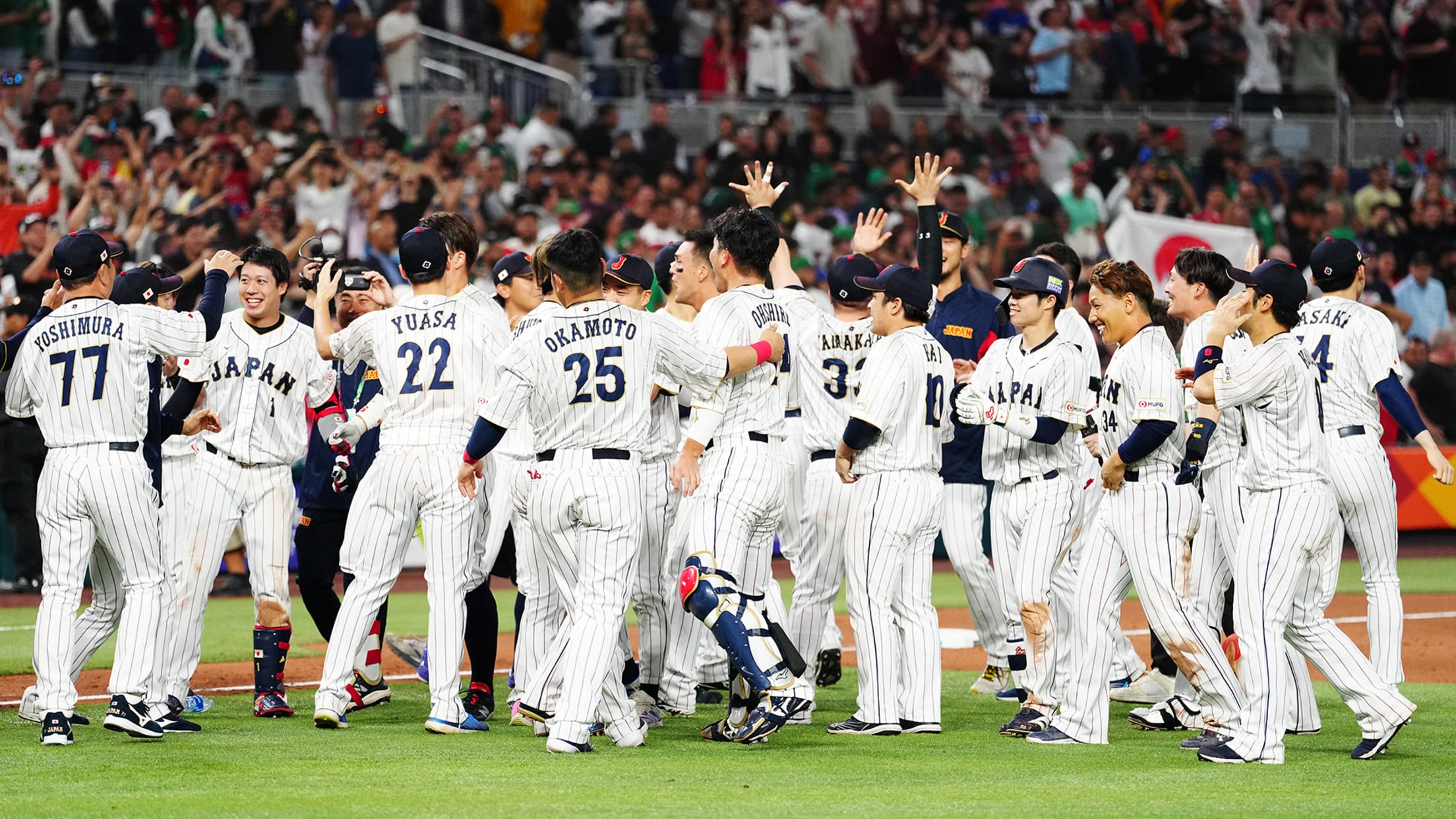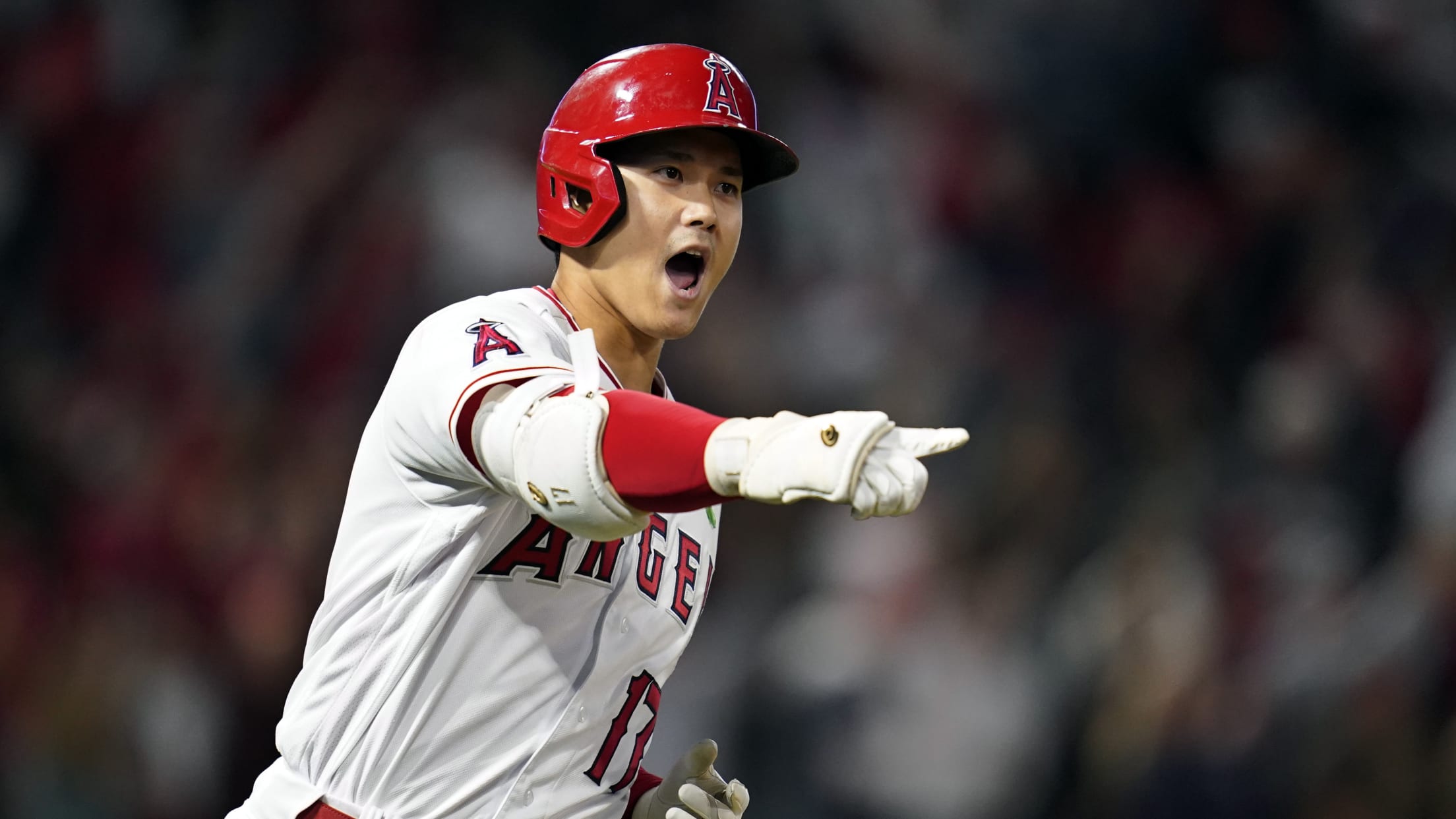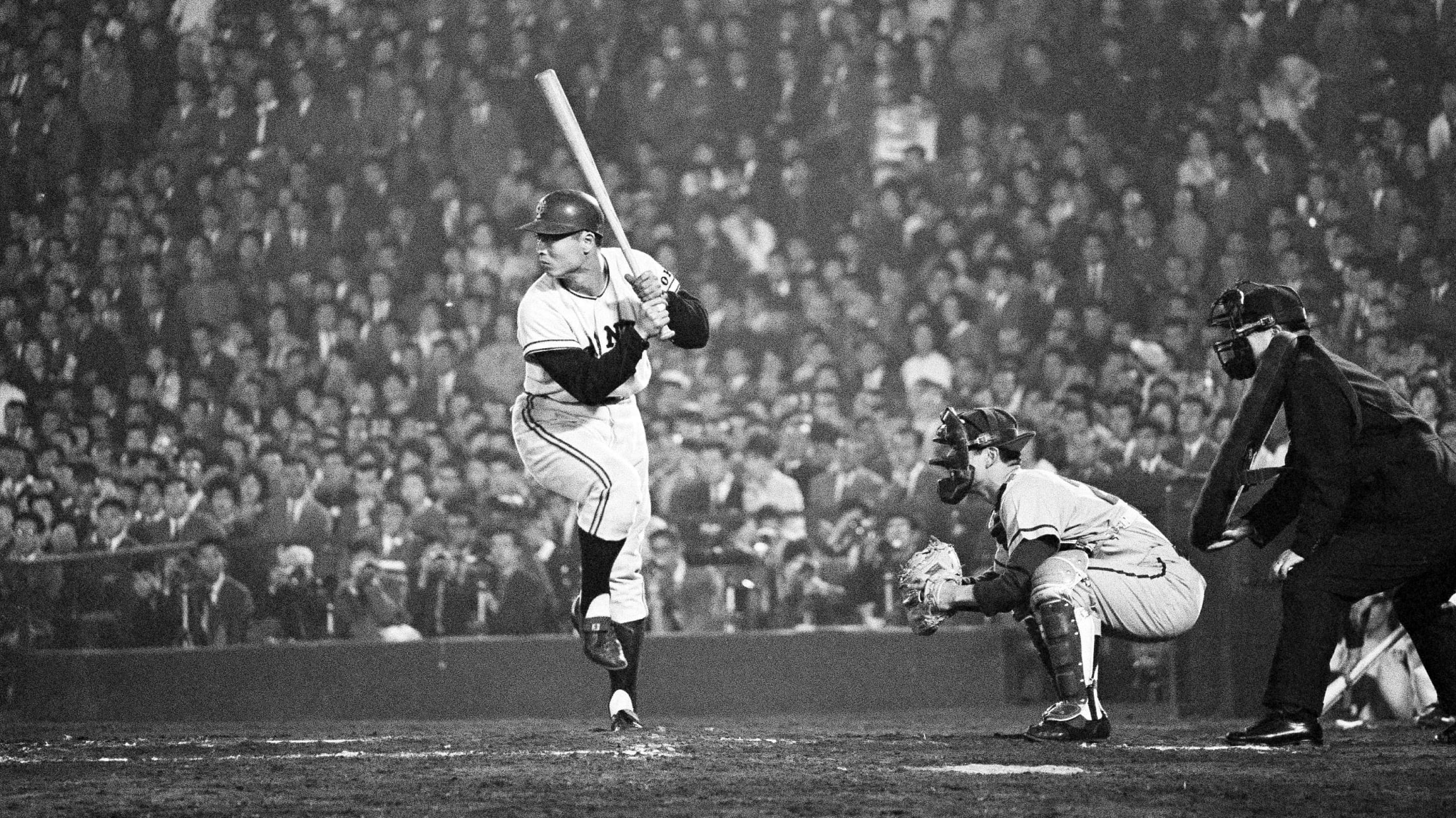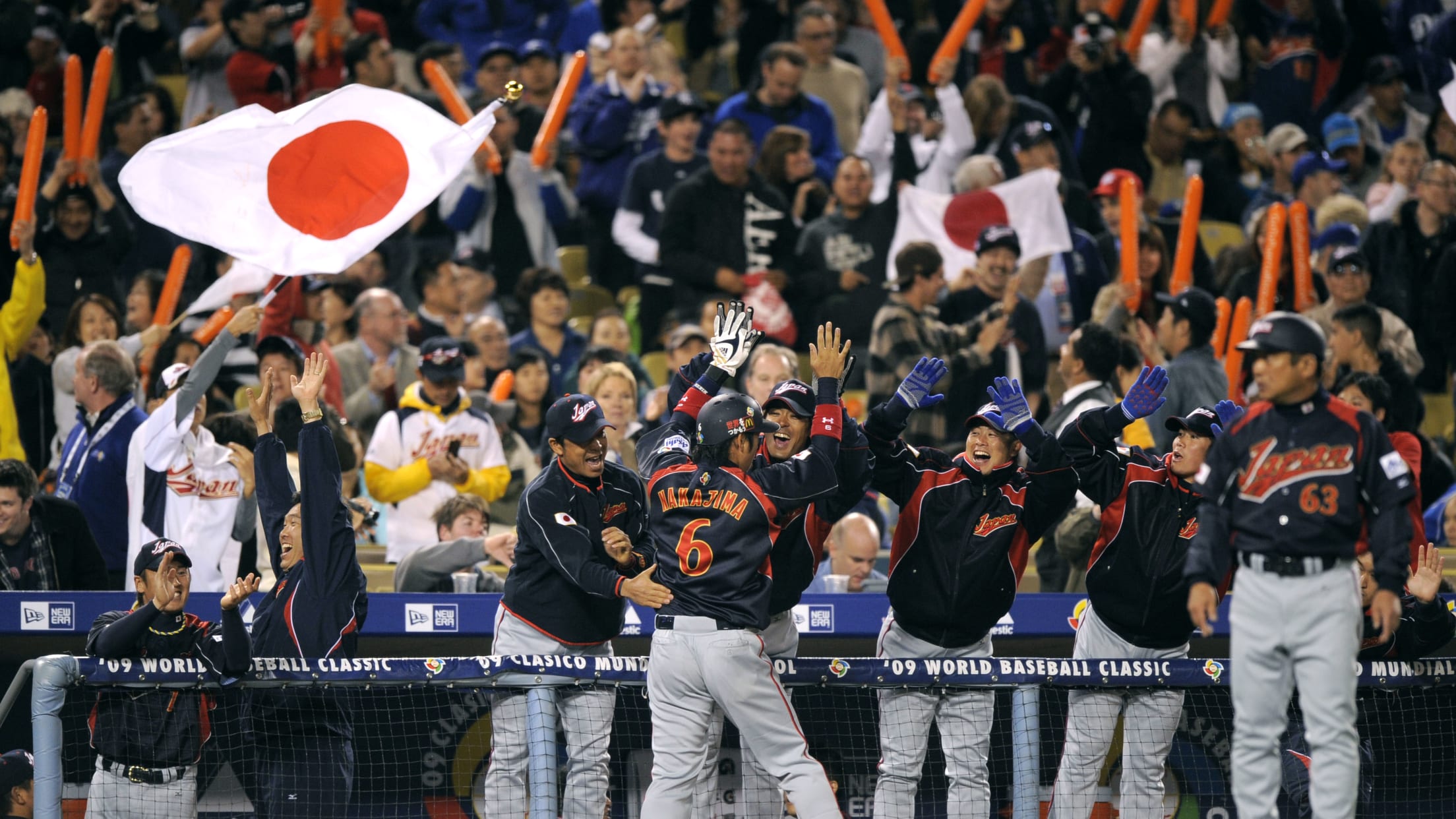
History of baseball in Japan

Baseball, now over 150 years old in Japan, is as ingrained in Japanese culture as the national pastime is in America. The game was introduced there in 1872 by American professor Horace Wilson, who taught it to his students at Kaisei Academy in Arakawa, Tokyo. In the century and a half since, it's become the country's most popular sport.
A seminal moment for Japanese baseball came in 1934: Yomiuri Shimbun president Matsutaro Shoriki organized a Japanese baseball all-star team that helped the sport take off. That year, Babe Ruth, Lou Gehrig and Jimmie Foxx arrived in Tokyo, leading an American all-star team of MLB legends on a tour of Japan, where they played a series of exhibitions against the All-Nippon team. Ruth & Co. brought a huge turnout from Japanese fans, and when the tour was over, Shoriki kept his all-star team together as the Great Japan Tokyo Baseball Club. That team would become the Yomiuri Giants.
Two years later, in 1936, Japan's first professional league formed with seven teams, including Shoriki's club. By 1950, it had grown to the point that it needed to reorganize into two leagues -- the Central League and the Pacific League -- under one name: Nippon Professional Baseball.
In the present day, NPB is widely recognized as the world's top baseball league outside of MLB. Baseball is an institution in Japan at every level, from the youth teams that routinely win the Little League World Series to the legendary summer Koshien high-school tournaments to the hugely popular NPB to the Japanese stars who jump to the Major Leagues.
Here's a guide to Japanese baseball in advance of the 2023 World Baseball Classic.
WBSC Rank: 1
Last WBC appearance: 2017
Best WBC finish: 1st (2006, 2009)
Top current Major Leaguers
Shohei Ohtani, RHP/DH, Angels
The two-way superstar was the 2018 AL Rookie of the Year and the 2021 AL MVP, and he finished as the MVP runner-up in '22 with 34 home runs, 11 stolen bases and 95 RBIs as a hitter and a 15-9 record, 2.33 ERA and 219 strikeouts as a pitcher. The former Hokkaido Nippon Ham Fighters star is playing for Japan in his first World Baseball Classic in 2023.

Yu Darvish, RHP, Padres
Darvish has been in the big leagues for over a decade now after moving from NPB to the Rangers in 2012, and he's collected 1,788 strikeouts and four 200-K seasons in that time. Now the ace for the Padres, the 36-year-old, known for throwing 10 different pitch types, is returning to pitch in his first World Baseball Classic since 2009, when he helped lead Japan to gold as a 22-year-old star for the Fighters.
Seiya Suzuki, OF, Cubs
The slugger from the Hiroshima Carp signed with the Cubs before the 2022 season and burst onto the scene by winning NL Rookie of the Month in his first month in the big leagues. Suzuki finished with 14 homers and 46 RBIs. The 28-year-old represented Japan in both the 2017 WBC and the 2020 Olympics.
Kodai Senga, RHP, Mets (new to MLB in 2023)
The Mets signed the 30-year-old pitcher to a five-year, $75 million contract this winter after 11 years with the Fukuoka Softbank Hawks. Senga throws 100 mph with a signature "ghost forkball" and had a 1.94 ERA and 156 strikeouts in 2022. He was lights-out in the 2017 World Baseball Classic and was named to the all-tournament team, but he's not pitching in WBC '23.
Masataka Yoshida, OF, Red Sox (new to MLB in 2023)
Yoshida, a superb contact hitter and two-time batting champion in NPB, is joining the Red Sox on a five-year, $90 million deal. Over his last five seasons with the Orix Buffaloes, the 29-year-old left-handed hitter had a .332 batting average, walked over 100 more times than he struck out and averaged 22 home runs a season. Yoshida is playing in the World Baseball Classic for the first time.
Famous former Japanese players
Ichiro Suzuki
One of the greatest pure hitters of all time, Ichiro is a member of MLB's 3,000-hit club and amassed 4,367 hits in his professional career between the Major Leagues and NPB. He was the AL Rookie of the Year and MVP in his first season with the Mariners in 2001 after leaving the Orix Blue Wave, and his 262 hits in '04 are the MLB single-season record.
Hideki Matsui
Nicknamed "Godzilla" for his fearsome slugging prowess, Matsui went from a star for the Yomiuri Giants to a star for the Yankees, becoming a fan favorite for NPB and MLB's most iconic franchises. He crushed 332 homers for the Giants and 175 more for the Yankees, giving him 507 total in his pro career. Matsui led Yomiuri to three Japan Series championships and the Yankees to the 2009 World Series championship.
Sadaharu Oh
The Japanese home run king, Oh slugged 868 home runs in his career for the Yomiuri Giants from 1959-80, the all-time NPB record. He won nine MVP Awards and led Yomiuri to 11 Japan Series championships.

Shigeo Nagashima
One of the greatest and most popular players in Japanese baseball history, Nagashima was Oh's longtime teammate and the two sluggers formed the legendary "ON Cannon." Nagashima batted .305 with 444 home runs in his 17-year career with the Giants.
Masanori Murakami
The first Japanese-born Major Leaguer, Murakami was sent by NPB's Nankai Hawks to the Giants in 1964. The lefty reliever made his MLB debut on Sept. 1 and pitched two seasons for San Francisco before returning to the Hawks.
Hideo Nomo
Nomo opened the door for future Japanese players to come to MLB when he made the jump from the Osaka Kintetsu Buffaloes to the Dodgers in 1995. Known for his unique "tornado" windup, Nomo became the first Japanese pitcher to throw a no-hitter in the Majors on Sept. 17, 1996, for Los Angeles, and he threw another in his team debut for the Red Sox on April 4, 2001.
Biggest moments in Japanese baseball history
1973: Giants win ninth straight title
Led by Oh and Nagashima, Yomiuri won an incredible nine straight Japan Series championships from 1965-73.
1978: Oh's 800th home run
The world home run king made history by reaching the 800-home run milestone -- something no Major Leaguer has ever done -- on Aug. 30, 1978, in front of a crowd of 55,000 at Korakuen Stadium in Tokyo.
2006 / 2009: World Baseball Classic champions
In the inaugural WBC in '06, the Japan squad managed by Oh and led by tournament MVP Daisuke Matsuzaka defeated Cuba in the championship game, 10-6. Japan repeated as champions in '09 when they beat South Korea in extra innings in the finals, 5-3. Korea rallied to tie the game in the ninth inning against Darvish, pitching as Japan's closer, but Ichiro came through with a two-out, two-strike, two-run single in the 10th to lift Japan to the title.

2020: Olympic gold medalists
Japan's first baseball Olympic victory came against the U.S. with a 2-0 win in the gold-medal game. Slugging prodigy Munetaka Murakami, who's playing in WBC '23, homered in the win.
Japan's professional league
Nippon Professional Baseball
Central League -- Chunichi Dragons, Hanshin Tigers, Hiroshima Toyo Carp, Tokyo Yakult Swallows, Yokohama DeNa Baystars, Yomiuri Giants
Pacific League -- Chiba Lotte Marines, Fukuoka SoftBank Hawks, Hokkaido Nippon-Ham Fighters, Orix Buffaloes, Saitama Seibu Lions, Tohoku Rakuten Golden Eagles
NPB plays a 143-game regular season, beginning in late March (the 2023 season opens on March 30). The top three teams in the Central League and the Pacific League advance to the postseason, which is made up of the Climax Series and the Japan Series.
The Climax Series determines the one team from each league that will compete for the NPB championship in the Japan Series. The first stage of the Climax Series is a best-of-three series between the No. 2 and No. 3 seed in each league, with all games played at the home ballpark of the higher seed. The winners of those matchups go on to play their league's No. 1 seed in the Climax Series' final stage -- a best-of-six series where the top team is awarded a one-win advantage and home field for all the games.
The winners of the Climax Series advance to the Japan Series: a best-of-seven showdown between the Central League and Pacific League winners to determine the NPB champion. The series is played in a 2-3-2 format, with home-field advantage alternating between the two leagues from year to year. NPB games end in a tie after 12 innings, which can result in a Game 8 in the Japan Series, although it's only happened once, in 1986. The reigning NPB champions are the Orix Buffaloes. The Yomiuri Giants have the most NPB championships, with 22.
Japan's famous ballparks
Tokyo Dome
The home of the Yomiuri Giants, who have the most NPB championships (22) since the inaugural Japan Series in 1950 and are the team of superstars like Matsui and Oh. The Tokyo Dome has been a host stadium in every World Baseball Classic, and the very first WBC game was played there in 2006.
Koshien Stadium
The site of Japan's famed national high school championship tournaments every summer in Nishinomiya. The Koshien tournament is the stage on which many young players rise to national stardom -- including Oh, Matsui, Matsuzaka, Darvish, Masahiro Tanaka and Ohtani.
Meiji Jingu Stadium
One of the stadiums where the Ruth-led MLB All-Stars faced the All-Nippon team in the 1934 Japan tour. Now the home of the Tokyo Yakult Swallows, Jingu Stadium opened in 1926 and is one of the few remaining stadiums where Ruth played.
Unique food / activities at games in Japan
? Japan is famous for its cheering sections (called "ouendan") at NPB games for both the home and visiting teams. There are cheers and songs for every team and the different players in the lineup.
? Where MLB has the seventh-inning stretch, NPB has the "Lucky 7," where balloons are jetted off into the air.
? In addition to typical ballpark food like beer and popcorn, you can also get Japanese staples like bento boxes at NPB games.